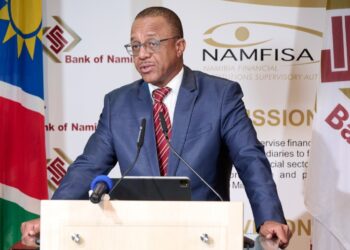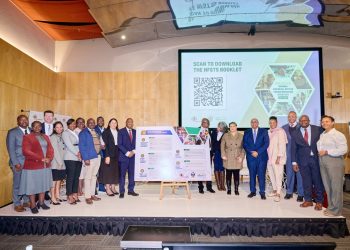
Economic advisory firm Simonis Storm says the newly launched Welwitschia Sovereign Wealth Fund could be abused if no proper guidelines are put in place.
Namibia early this month launched a sovereign wealth fund that seeks to promote intergenerational prosperity for all Namibians by ensuring that the distribution of benefits flowing from exploiting the country’s natural resource endowments is shared across generations.
Royalties from the sale of natural, renewable and non-renewable mineral resources, taxes, divestiture from public investment holdings and contributions from certain state-owned enterprises will finance the fund.
“Our concerns remain on the active daily governing of the fund, where potential risks of misappropriation and fraud cannot be ignored,†Simonis Storm Economist Theo Klein said.
He said although the risks remain low, the possibility of political pressure to access the fund is something that needs to be taken into consideration.
“If our economy does not see a material rebound so that higher tax revenues improve the fiscal position and debt continues to mount, it could be that political pressure might attempt to change the withdrawal rules on the Welwitschia Fund. While these risks remain fairly low in our view, it remains risks we should be aware of. What the Namibian experience will look like remains to be seen, but clear global and regional examples of what not to do and what works are there for us to learn from and adopt,†Klein said.
The Economist noted that although a governing framework was being prepared to govern the fund in the long term, rules and regulations governing the withdrawal of funds will have to be enforced properly and effective accountability will have to be established.
“The importance of a sound governing framework has been pointed out by the President, BoN’s Governor and the Minister of Finance. While a draft for the governing framework has been prepared, this must still be submitted for final approval so that it becomes a separate legal document. Once legislated, rules and regulations governing the withdrawal of funds will have to be enforced properly and effective accountability will have to be established to provide peace of mind to the public that money in the Fund will not be misappropriated, given that public trust in government is fairly low. About 68% of Namibians believe that “some†or “a lot†of the resources intended for the pandemic response/relief was lost or stolen due to government corruption according to a survey done by Afrobarometer (released in February 2022),†Klein said.
The Welwitschia Sovereign Wealth Fund has an intergenerational Savings Account where a portion of revenue and royalties earned from the country’s natural resources will be saved towards future generations.
Should Namibia succeed in establishing green hydrogen and oil exploitation operations, a portion of revenues generated from these projects will also be allocated to the Savings Account. Other sources of savings could come from taxes, divestiture from public investment holdings and contributions from State Owned Enterprises.
Klein’s concerns come as Economic Advisor to the Minister of Finance, Helvi Fillipus exclusively revealed during The Brief Interview that proposed regulations which will determine the operation of the fund will ensure the fund is safeguarded from any unwarranted withdrawals.
“The law that we are putting in place is to safeguard the assets that we are putting into the fund, so that they can only be utilised for only those two objectives and you would see when bringing out the draft law that even for fiscal stabilisation, it has to be under specific conditions. You cannot just say the government is running a budget deficit and you would want to withdraw from the fund. It has to be for certain types of shocks, it cannot just because I want to spend and go to the fund to get money. There will be strict mechanisms around the operations of the fund,†Economic Advisor said.
“So you have investment rules, at what point money flows in the Fund and we have withdrawal rules, when can you withdraw. The rules are different for each account and are clearly stipulated and clearly outline that the government cannot use the fund as collateral to borrow and the fund itself cannot borrow, no company can borrow from the fund.â€
The United Nations estimates that African SWFs have combined assets of US$159 billion compared to an estimated US$10 trillion for all global SWFs.
African SWFs are largely funded from surpluses from commodity exports and about half of all African SWFs were created within the last decade according to the United Nations.Â











